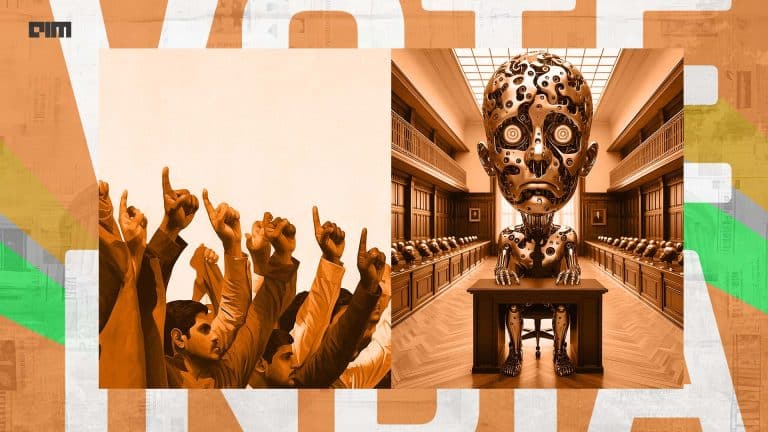A digital presence is one of the most essential requirements of any enterprise, and a website with a high ranking on the search pages plays a pivotal role in the success of the business. In order to become the first choice of search engines, websites must meet a plethora of guidelines set by AI-powered engines. With over 5.6 billion searches every day, search engines like Google, Yahoo, Bing, etc., take into account the user’s previous searches and come up with the results that best match the user’s needs. As search engines use AI and machine learning to optimise their SERPs, websites approach a similar method to tackle this conundrum. In this tug of war between AI-powered search engines and SEO tools using AI, who will benefit the most?
Search engines – a brief history
In order to properly understand the need of using AI for SEO, let us delve into the evolution of one of the biggest search engines developed over the years.
On December 1, 2000, Google launched its first browser toolbar with Toolbar Page Rank (TBPR), a free browser plugin that enabled users to look for information with the help of Google’s fast, highly relevant search technology. And thus, the dance for SEO began.
The first named Google update was announced on February 1, 2003, at SES Boston, which brought out a combination of changes in the search algorithm, as well as major index refreshes to improve on the SERP.
Google updates made its name in the world with its update on November 1, 2003, in Florida, as the search engine started de-ranking low-value late 90s SEO tactics, like keyword stuffing. This update turned out to be a game-changer.
In October 2005, Google brought Maps into the game as it merged its data on maps with LBC to enhance its searching capabilities.
On May 1, 2007, Google unveiled Google 2.0, an enhanced universal search engine with integrated search results for Images, Video, News, Local, and other verticals of different formats. This update ushered in a new age of blended result pages.
June 1, 2010 – Google rolls out its Caffeine update. This update brings out a 50% fresher index by boosting the search engine’s raw speed and integrating crawling and indexing in a tighter manner.
September 1, 2010 – Google launches Google Instant. This update provides search results to the query as it is being typed. It brought a revolution in SEO as the users started using long-tailed keywords for better rankings.
February 23, 2010 – Google released its Panda update that hit websites hard, affecting over 12% of search results. The new algorithm flagged content farms, sites with thin content or high ad-to-content ratio, as well as other quality issues.
April 2012 – After weeks of deliberation about an “Over-optimization penalty”, the Penguin update is rolled out. This update focused on adjusting a number of spam factors like keyword stuffing and affected an estimate of 3.1% of search queries.
August 2013 – Google unveils its Hummingbird update a month prior to its official launch. This version is a core algorithm update that brings significant changes to semantic search.
October 2019 – Google brought major improvements in its underlying hardware and algorithm to accommodate BERT, a natural language processing (NLP) model. This update helped the search engine better understand the context of the queries.
How BERT enhances search
BERT (Bidirectional Encoder Representations from Transformers) utilises transformers to understand the context between words in a text. It uses an encoder mechanism that reads the entire text at once to learn the context based on all of the surroundings.
Image: Towardsdatascience.com
The model then tries to predict the actual meaning of the masked words based on the context provided by unmasked words in the sentence. BERT’s bidirectional approach (MLM) provides a 15% improvement in its training accuracy at the cost of computing speed.
Image: BERT Pre-training graph from towardsdatascience.com
Enhancing SEO to tackle SERPs using AI
Search engine optimisation is the process of collecting traffic data from a running website, identifying areas of improvement, forming a plan to rectify the problem and enhancing the website to increase its ranking. SEO is a continuous process that requires a lot of data processing and analysis. AI tools can be used to automate such time-consuming tasks to scale and improve the overall performance of the site.
Long Tail searches: A study conducted by Bloomreach regarding customer service engagement revealed that 82% of B2C shoppers’ time is spent searching and browsing for the right content. This signifies the vast space left for long-tailed searches that is overlooked by marketers. Integration of AI helps take into account the customers’ long-tailed searches as it identifies matching content and presents relevant pages that aren’t being linked to the search.
SEO Audits: Regular site audits are one of the most complex and time-consuming tasks. Such audits are important as they reveal issues like broken links, duplicate content, etc., that might affect the website’s search performance.
Image: Sample site audit from Semrush
AI-based SEO tools like Semrush, Ahrefs, Spyfu, etc., provide comprehensive audits and reports from keyword search to organic research trends that not only showcase issues but ways to improve your website.
Voice Search: According to data from findstack.com, 71% of users prefer searching for information via voice rather than text. Integration of AI tools like AnswerThePublic helps you target question type long-tailed keywords that are synonymous with voice searches.
Content Optimisation: One of the vital methods to improve one’s search ranking is publishing content with topical credibility. AI tools like Content Fusion use deep learning to dish out data from subject matter experts and improve the overall quality of the content itself. Artificial intelligence also helps integrate visual data like graphs, images and charts to increase user engagement.
AI – the future of SEO
As search engines keep updating their AI to improve the quality of their SERPs, websites must constantly meet the changes that the updates bring in terms of optimisation. AI in SEO will open new pathways to tackle the ever-changing guidelines by understanding intent and providing tailormade results for the user’s queries directly.
With content and strategy driving the SEO landscape, AI-powered tools are boosting SEO strategies to better understand search engine algorithms and improve on their overall reach.







































































































